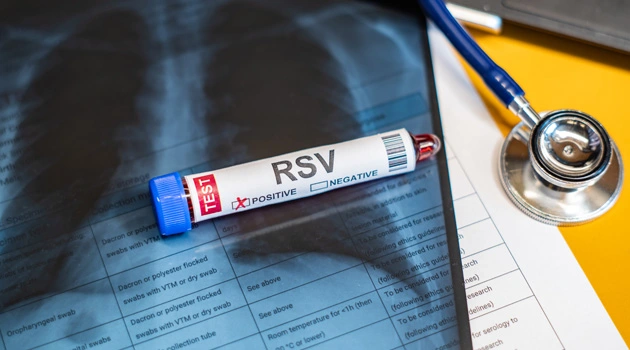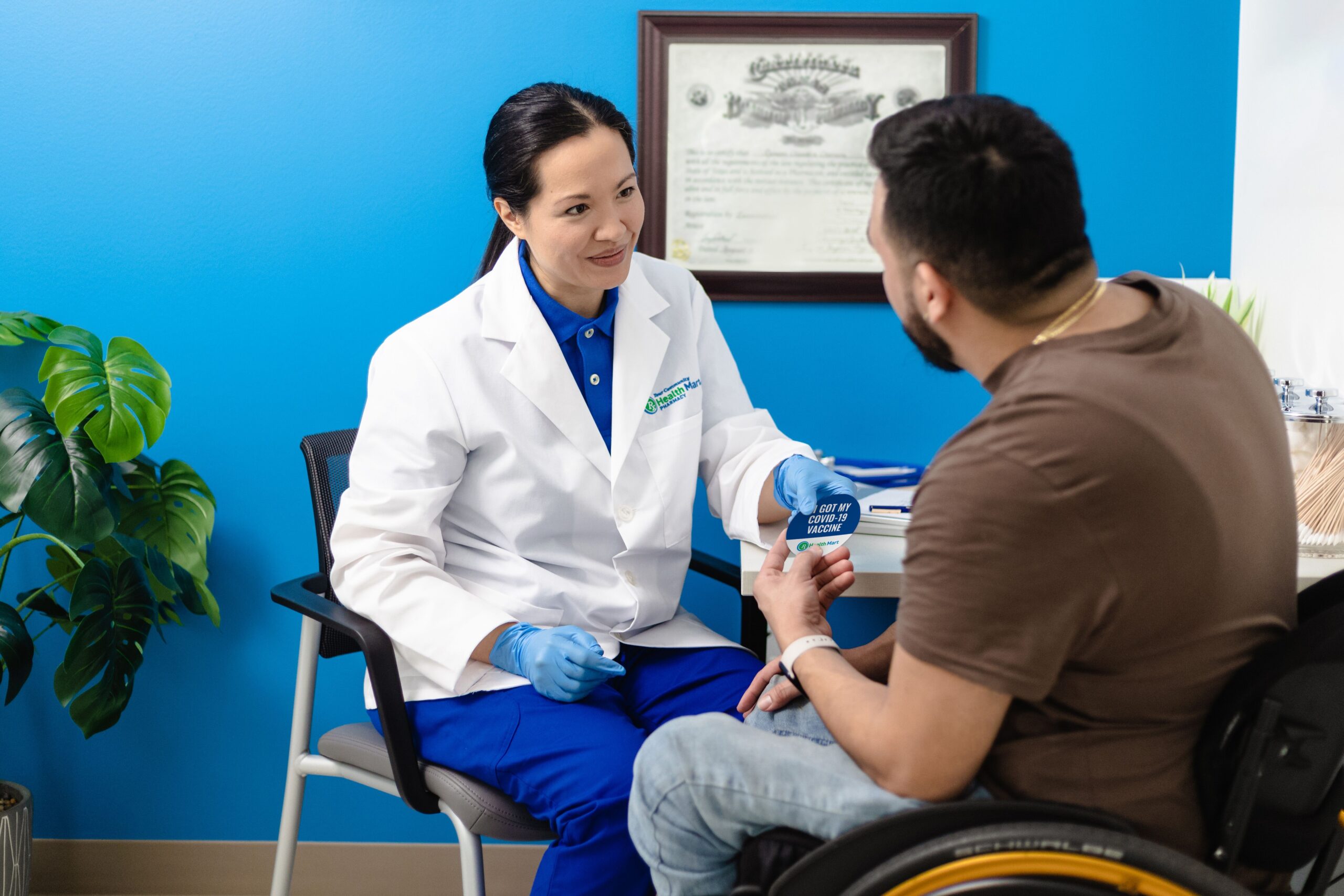
- RSV FAQs: What providers need to know about the new RSV vaccines
RSV FAQs: What providers need to know about the new RSV vaccines
13 min read
Researchers have tried for over 50 years to develop a safe, effective vaccine to protect against the respiratory syncytial virus (RSV). Finally, the U.S. Food and Drug Administration (FDA) has approved vaccines against RSV.

So far in 2023, the FDA has approved GSK’s AREXVY vaccine and Pfizer’s ABRYSVOTM (both for adults aged 60 years and older) and Sanofi’s Beyfortus® (Nirsevimab) infant vaccine, set to launch in Fall.
Two additional RSV vaccines, under development by Moderna and Bavarian Nordic, are expected to be approved and available for providers and patients in this population in the future.
Disclaimer: The above information will update on this page upon launch date confirmation
Patients and providers will likely have questions about the new RSV vaccines. The following list of RSV FAQs (frequently asked questions) and answers can help you learn more about the new vaccines and how to educate patients and their families about them.
What is RSV (respiratory syncytial virus)?
RSV is not dangerous for most people and typically causes a bad cold with symptoms such as coughing, sneezing, wheezing, runny nose and fever. But the virus can be dangerous, even lethal, for young infants, older adults, immunocompromised people and those with chronic heart or lung disease.1
According to the U.S. Centers for Disease Control and Prevention, 58,000 to 80,000 children younger than five years old and 60,000 to 160,000 adults 65 years and older are hospitalized with RSV each year.2 This virus is the leading cause of infant hospitalization, leading to 100 to 300 deaths in children five years old and younger.2
RSV is also responsible for 6,000-10,000 adult deaths over 65, with RSV-associated hospitalization costs for adults over 18 estimated to be an average of $1.2 billion per year.3
How is RSV spread?
RSV is highly contagious and can spread when a person coughs or sneezes. The virus can also live on surfaces such as bedsheets and countertops for several hours.
How to test for RSV?
Rapid RSV antigen tests are the most common tests for RSV. They check a nasal fluid sample for proteins from the virus and results can be available in less than one hour.
Another way to test for RSV is the real-time reverse transcriptase-polymerase chain reaction (rRT-PCR), a molecular test. In this case, a sample of nasal fluid is sent to a lab and checked for genetic material from the RSV virus.
The rapid RSV antigen test is more effective in children, and the rRT-PCR is effective in both children and adults.4
Who should get an RSV vaccine?
Specific populations are at higher risk for RSV. Adults aged 60 and older may receive a single dose of the Respiratory Syncytial Virus (RSV) vaccine using shared clinical decision-making.5
Additionally, experts recommend that people 65 and older with lung disease, heart disease or other underlying conditions that may cause problems with a respiratory virus should consider getting an RSV vaccine.
Abrysvo is expected to be approved for pregnant women in the coming months, after an FDA advisory panel voted in favor of administering the vaccine maternally to protect infants6. The Beyfortus® (Nirsevimab) vaccine will also be available soon for infants.
Disclaimer: The above information will update on this page upon launch date confirmation.
Work with your patients to establish which vaccine will be suitable for them.
How effective is the RSV vaccine?
Vaccine trial results published in the New England Journal of Medicine showed that the new RSV vaccine for adults was 83% effective in preventing a lower respiratory tract disease, including having at least two symptoms for a day.7 The vaccine was also 94% effective at preventing severe diseases that could lead a patient to need supplemental oxygen or a ventilator.7
How quickly were the RSV vaccines developed?
It took decades for scientists to develop effective vaccines to protect against RSV. The virus was discovered in 1956,4 and by the early 1960s, it was targeted for vaccine development.8
Scientists uncovered new information about the shape of the virus’s proteins in the early 2000s. That discovery paved the way for determining the problems with earlier versions of the RSV vaccine and developing new, effective versions.
By being informed about the new vaccines and consulting RSV FAQs, providers can help educate their patients. And, for those at risk of getting RSV, the long-awaited vaccines can help boost health outcomes.
Related Articles
Tags
Sources
- https://www.cdc.gov/rsv/index.html ↩︎
- https://www.cdc.gov/rsv/research/index.html ↩︎
- https://onlinelibrary.wiley.com/doi/full/10.1111/irv.12912 ↩︎
- https://www.cdc.gov/rsv/clinical/index.html ↩︎
- https://www.cdc.gov/vaccines/acip/recommendations.html#:~:text=Adults%2060%20years%20of%20age,using%20shared%20clinical%20decision%2Dmaking ↩︎
- https://www.pharmacist.com/Pharmacy-News/to-protect-infants-fda-advisers-recommend-rsv-vaccine-during-pregnancy ↩︎
- https://www.nejm.org/doi/full/10.1056/NEJMoa2209604 ↩︎
- https://www.washingtonpost.com/health/2022/10/10/rsv-vaccine/ ↩︎
